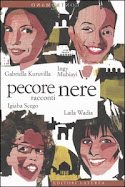In Italy, Sign of Defiance in a Kebab and a Coke
Article Tools Sponsored By
By ELISABETTA POVOLEDO
Published: April 23, 2009
MILAN — While cameras clicked and video operators moved in for a close-up, Giorgio Schultze raised his hands defiantly. In one, he held a can of Coke, in another a doner kebab — the overstuffed spicy beef and veal sandwich that has become as common as pizza in this northern Italian city.
“I am now committing two crimes,” said Mr. Schultze, an independent candidate for the European Parliament elections in June. “I am eating outside. And I am drinking.”
Actually, it is likely that thousands, if not tens of thousands, of Lombardy residents are running afoul of a regional law passed this week that regulates how fast-food restaurants and takeout shops may sell the food they produce.
The law, which also applies to ice cream parlors and pizza stands, bans establishments without restaurant or bar licenses from selling anything other than what they themselves produce on site, including drinks. Customers consuming outside the premises cannot sit down or use plastic utensils. (As Mr. Schultze was standing and held his kebab with a napkin, technically he was breaking only one law).
But what brought dozens of people to a so-called protest lunch outside a doner kebab shop on Thursday was concern that the law was aimed at fast-food restaurants run by immigrants. The measure was approved Tuesday by the center-right majority, but was championed by the conservative Northern League, as a means to preserve the traditional identity of Italian cities. Recently, the party has been lobbying nationally to establish unarmed citizens’ groups that would patrol to prevent violent crimes, which are widely attributed to immigrants.
“In its original form the law was more racist — it was specifically geared to get kebab shops out of the city center,” said Giuseppe Civati, a regional lawmaker with the Democratic Left opposition party, who organized the protest from his blog and then through Facebook, where hundreds of people joined his group.
In Italy, in fact, there are numerous “anti-kebab” groups on Facebook. In Bergamo, Mr. Civati said, there are pro-kebab and anti-kebab Facebook groups fiercely competing for members. Italian fans of foreign foods can also join a group calling itself the Couscous Clan, which promotes what it calls “gastronomic trans-contamination.” It was started 15 years ago in Turin and became a Facebook group this year after the Tuscan city of Lucca banned new ethnic and fast-food restaurants from opening in its historic center.
Supporters of the law say that it finally regulates a sector that had existed in a confused legislative status for years. Rather than restrict what takeouts sell, they say, the law legalizes what had been under-the-counter behavior, while protecting bars and restaurants from unfair competition on the part of fast-food businesses. “Bars and restaurants have to follow strict sanitary codes as well as numerous other laws that takeaways didn’t, and that wasn’t fair,” said Lino Stoppani, president of the Italian Federation of Bars and Catering.
Violators of the new law, which also mandates closing hours for the establishments, are supposed to be fined about $195 to $1,300.
But, Mr. Civati said: “It’s a ridiculous law and the fines will never be applied. It’s a sign of a lot of political confusion.”
SOURCE

















